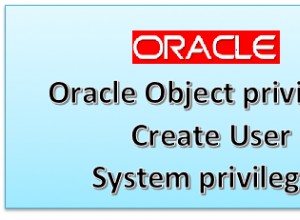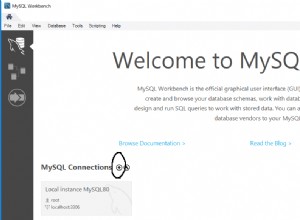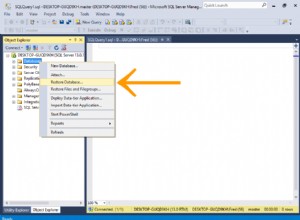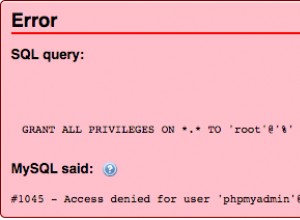Il terzo argomento di jsonb_set() dovrebbe essere di jsonb genere. Il problema è nel trasmettere una stringa di testo alla stringa jsonb, è necessaria una stringa tra virgolette. Puoi usare concat() o format() :
update animal
set info =
jsonb_set(info, '{location}', concat('"', lower(info->>'location'), '"')::jsonb, true)
-- jsonb_set(info, '{location}', format('"%s"', lower(info->>'location'))::jsonb, true)
where id='49493'
returning *;
id | info
-------+------------------------------------------------------------------
49493 | {"habit1": "fly", "habit2": "dive", "location": "sonoma narite"}
(1 row)
In Postgres 9.4 dovresti annullare l'annidamento della colonna json usando jsonb_each_text(), aggregare chiavi e valori modificando al volo il valore corretto e infine creare un oggetto json:
update animal a
set info = u.info
from (
select id, json_object(
array_agg(key),
array_agg(
case key when 'location' then lower(value)
else value end))::jsonb as info
from animal,
lateral jsonb_each_text(info)
group by 1
) u
where u.id = a.id
and a.id = 49493;
Se riesci a creare funzioni questa soluzione potrebbe essere più piacevole:
create or replace function update_info(info jsonb)
returns jsonb language sql as $$
select json_object(
array_agg(key),
array_agg(
case key when 'location' then lower(value)
else value end))::jsonb
from jsonb_each_text(info)
$$
update animal
set info = update_info(info)
where id = 49493;




